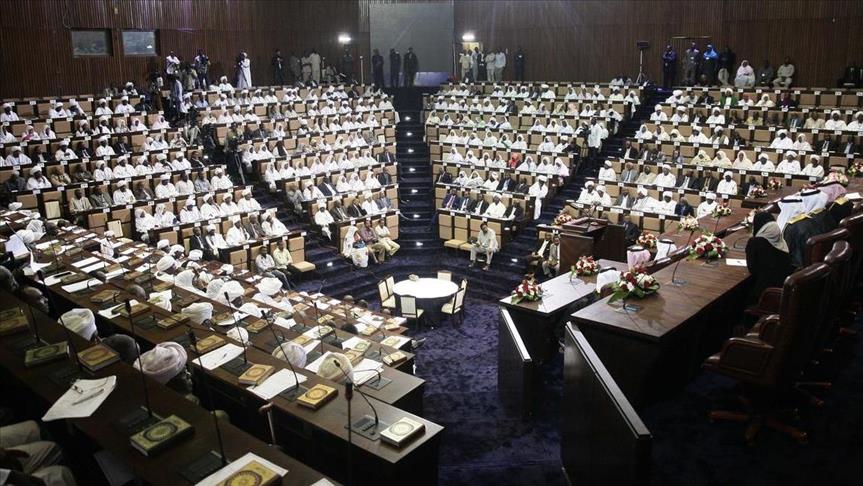مبدأ سمو الدستور وحمايته في الوثيقة الدستورية للفترة الانتقالية لحكم السودان لسنة 2019م تعديل 2020م
The Principle of the Supremacy of the Constitution and its Protection in the Constitutional Charter for the Transitional Period of Rule of Sudan for the Year 2019, Amended 2020

اعداد : د. عادل عبد الحميد عامر محمد علي – عميد كلية الشريعة والقانون – جامعة سنار -السودان
المركز الديمقراطي العربي : –
- مجلة القانون الدستوري والعلوم الإدارية : العدد الثاني والعشرون شباط – فبراير 2024 – المجلد 6 ، مجلة دولية محكمة تصدر عن #المركز_الديمقراطي_العربي المانيا- برلين.
- تعنى المجلة في مجال الدراسات والبحوث والأوراق البحثية في مجالات الدراسات الدستورية والعلوم الإدارية المقارنة – نشر البحوث في اللغات ( العربية – الفرنسية – الإنجليزية )
للأطلاع على البحث “pdf” من خلال الرابط المرفق :-
الملخص :
هدفت الدراسة الي الإلمام بهذا المبدأ وصوره وبيان مفهوم الدستور وأنواعه ومعرفة وسائل حماية هذه المبدأ في السودان. تكمن أهمية هذه الدراسة في أن الدستور هو القانون الاسمى الذي له العلو والسيادة على جميع السلطات في الدولة ویشكل مبدأ سمو الدستور مظهراً أساسیا من مظاھر دولة القانون لارتباطها الوثیق بمبدأ آخر وهو مبدأ سیادة حكم القانون، والذي بموجبه یصبح الجمیع حكام أومحكومین خاضعین للقانون، ولا یجوز لأي منهم التصرف بما یتعارض مع أحكام القانون، ولا يتحقق ذلك الا بوضع آليات تعمل على تحقيقه. تمثلت مشكلة الدراسة في معرفة إلى أي مدى استطاع المشرع من حماية ملدأ سمو الدستور وبيان صور تحقيقه ومعرفة الآلیات التي نص عليها المشرع السوداني لحماية هذا المبدأ .اتبعت الدراسة المنهج التحليلي الوصفي لدراسة هذا الموضوع. توصلت الدراسة للعديد من النتائج من أهمها :إن مبدأ سمو الدستور من المبادئ الأساسية التي نصت عليها الوثيقة الدستورية للفترة الانتقالية في السودان لسنة 2019م تعديل 2020م والذي يعني علو قواعد الوثيقة الدستورية على سائر القواعد القانونية في السودان من تشريعات، وقوانين، ولوائح، وقرارات إدارية..تتمثل وسائل حماية مبدأ سمو الدستور في :الرقابة القضائية والتي جعلتها الوثيقة الدستورية من اختصاصات المحكمة الدستورية ولها سلطات الغاء أي تشريع يخالف الدستور كما منحت الاشخاص الحق في الطعن في أعمال مجلس السيادة والوزراء اذا تجاوزت هذه الأعمال الوثيقة الدستورية ، ورقابة سياسية جعلها المشرع من اختصاص المجلس التشريعي الانتقالي وذلك باعتبار القانون نافذاً في حالة عدم التوقيع عليه من قبل مجلس السيادة لمدة خمسة عشرة يوما دون ابداء اسباب. توصي الدراسه :على السلطات المختصة في السودان تكوين المحكمة الدستورية لان غياب هذه المحكمة منذ انتهاء فترة أعضاء المحكمة السابقيين يؤثر على سير العدالة ومراقبة مبدأ سمو الدستور وتعطيل تنفيذ العديد من الاحكام .
Abstract
The study aimed to know this principle and its forms, explain the concept of the constitution and its types, and learn about the means of protecting this principle in Sudan. The importance of this study lies in the fact that the constitution is the supreme law that has supremacy and sovereignty over all authorities in the state, and the principle of the supremacy of the constitution constitutes a basic aspect of the state of law because of its close connection with another principle, which is the principle of the supremacy of the rule of law, according to which everyone, rulers or ruled, becomes subject to the law. None of them may act in contravention of the provisions of the law. This can only be achieved by establishing mechanisms that work to achieve it. The problem of the study was to recognize what the principle of the supremacy of the constitution is, the ways to achieve it, and to know the mechanisms stipulated by the Sudanese legislator to protect this principle. The study used the descriptive analytical method. The study reached several findings, the most important of which are: The principle of the supremacy of the constitution is one of the basic principles stipulated in the Constitutional Charter for the transitional period in Sudan for the year 2019, amended 2020, which means the supremacy of the rules of the Constitutional Charter over all other legal rules in Sudan, including legislation, laws, regulations, and administrative decisions.. The means of protecting the principle are: The supremacy of the Constitution in: judicial control, which the Constitutional Charter made within the jurisdiction of the Constitutional Court and which has the powers to nullify any legislation that violates the Constitution. It also granted people the right to challenge the actions of the Sovereign Council and the Council of Ministers if these actions exceed the Constitutional Charter and political control, the legislator made it within the jurisdiction of the Transitional Legislative Council, by considering the law effective if it is not signed by the Sovereignty Council for a period of fifteen days without giving reasons. The study recommends The competent authorities in Sudan should form the Constitutional Court because the absence of this court since the end of the term of the previous members of the court affects the course of justice, monitoring the principle of the supremacy of the constitution, and disrupting implementation of many decisions.




